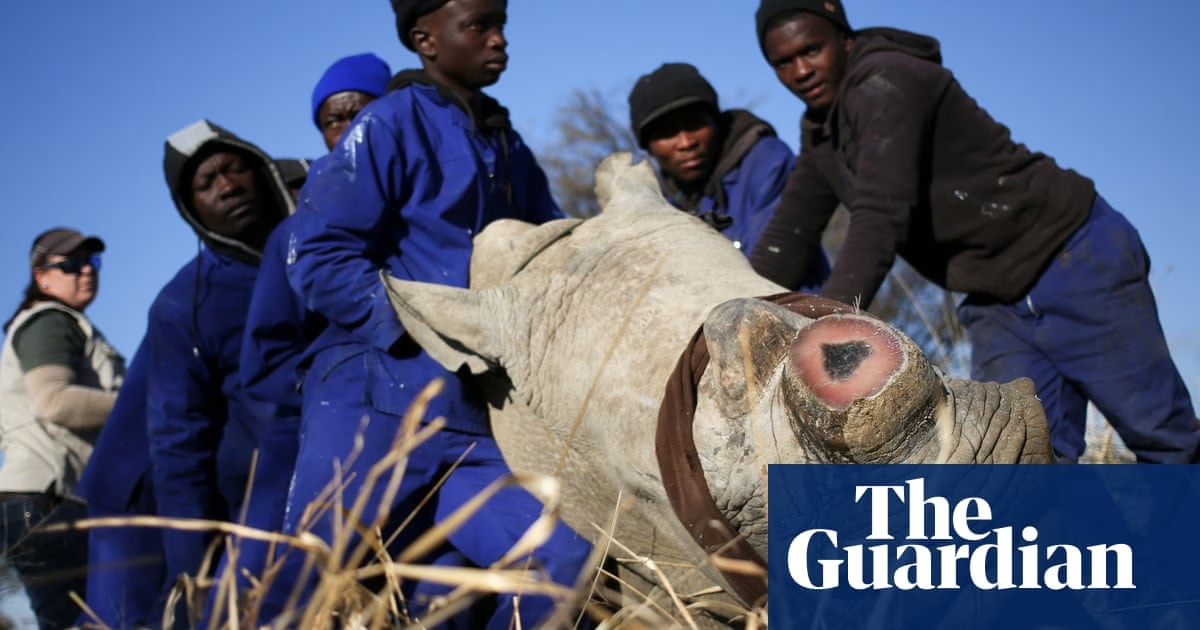Removing the horns of rhinos has been found to significantly reduce poaching rates, according to a recent study, raising questions about the effectiveness of expensive anti-poaching measures aimed at protecting these African mammals.
Poaching for rhino horns poses a substantial threat to the world’s five rhino species. The horns, composed of keratin — the same material found in human fingernails — are valued in traditional medicine practices, particularly in countries like China and Vietnam, for their supposed curative properties, including fever relief, pain management, and treating low sex drive. However, there is no scientific evidence backing these health claims, and rhino horn is essentially half the price of white gold on the black market.
The study, published in Science, assessed rhino protection methods in the Greater Kruger region of South Africa, home to a quarter of the continent’s rhinos. The findings indicated that removing horns led to an almost 80% reduction in poaching incidents between 2017 and 2023.
Collaborative research involving scientists, conservationists, and government officials found little statistical evidence supporting the effectiveness of traditional anti-poaching interventions, such as patrolling with rangers, detection cameras, dog tracking, and helicopter use, in reducing rhino poaching, despite their high costs.
Dr. Tim Kuiper, one of the study’s authors from Nelson Mandela University, commented on the effectiveness of dehorning rhinos in achieving a significant decrease in poaching incidents at a relatively low cost compared to other methods. Despite the reduction in poaching, dehorning isn’t a definitive solution, as some poachers still target rhinos for the remaining horn stump.
The dehorning process involves sedating the rhino, applying a blindfold and earplugs, and using a power saw to remove part of the horn. Although the removed horn will regrow, the animal experiences no pain during the procedure. The research also noted potential behavioral changes in dehorned rhinos, indicating they become more timid and occupy smaller territories.
However, the study acknowledges that while dehorning may not be a permanent solution and has some drawbacks, it currently offers a more effective strategy than the current anti-poaching efforts. Addressing the underlying reasons for poaching is ultimately necessary, but dehorning could serve as a better alternative in the meantime to protect rhino populations.
The Greater Kruger region has experienced high levels of rhino poaching, with 103 rhinos lost in the first three months of 2025 and 420 in the previous year, reflecting the broader decline of rhino populations due to poaching and habitat loss over several decades.
Proponents of the study emphasize the importance of collaboration across different sectors in rhino conservation, remembering Dr. Sharon Haussmann, a leading figure in South African rhinoceros conservation. The research suggests a reevaluation of conservation strategies is necessary to effectively combat poaching and protect rhino populations.
Source: https://www.theguardian.com/environment/2025/jun/05/dehorning-rhinos-deters-poachers-rangers-helicopters-aoe








